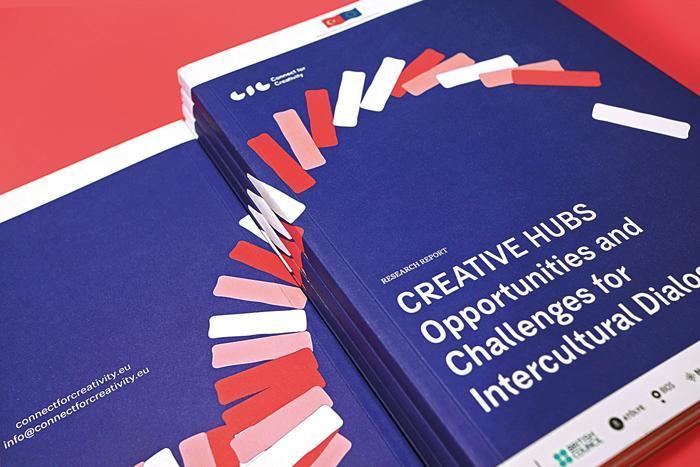Power of creative industries
Hatice Utkan Özden

In the 21st century, it is impossible to think about arts and culture without creative industries. Creative industries sound fairly new for Turkey’s majority. They are one of the key ingredients of the country’s future as it gathers architecture, design, plastic arts, new media, culture and advertising sector and create a new hub for these different sectors to work together.
The latest research, which was conducted as part of the “Connect for Creativity” project, proves how creative industries become more and more important each year. The research also shows how creative hubs are coming to the fore as tools for shifting economies. While in Turkey it is hard to speak about arts and culture in terms of a power shifting economy, creative justifies the opposite.
“We know that in the whole world the potential of creative industries’ shifting economies is rising each year and recent research shows that this is true,” said Cansu Ataman’s creative hub, ATÖLYE’s manager of arts.
Noting that the project in question, co-funded by the European Union and the Turkish government, is led by the British Council, in collaboration with ATÖLYE and Abdullah Gül University in Turkey, BIOS in Greece and Nova Iskra in Serbia as part of the EU-Turkey Intercultural Dialogue Program of the Yunus Emre Institute, Ataman added creative hubs’ importance is another asset in shifting economies and opens new dimensions in terms of arts and culture. The project also revealed the creative hubs and creative industries boost confidence among people and countries. “The creative hubs also let everyone work together and share the know-how,” said Ataman.
“When we consider creative industries, the role of creative hubs is important within that system. Within these hubs, many different people from different sectors work together and today we see an engineer working with a designer, designer working with an advertiser and so on… These all connect in creative hubs,” said Emre Erbirer, ATÖLYE’s project manager.
ATÖLYE is a 21st-century creative services company that embeds an award-winning Strategic Design Studio within a vibrant Creative Hub and it is open to all professionals working in the fields of creativity. The creative hub combines creative industries with entrepreneurship and technology.
What about Turkey?
According to Ataman, we all should look at what John Newbigin, the founder of Creative England, is saying. Ataman said, “Newbigin says in the same way that energy policy and access to energy was a determinant of geopolitics throughout the 20th century, it may be that policies to promote and protect creativity will be the crucial determinants of success in the 21st.” As a result, we need to be allocating more resources to creative industries.
Turkey’s development in creative industries is another key focus for us, said Emre Erbirer. “Turkey is one of the countries that include much different creative workforce and the creative workforce in arts and culture and other sectors are significant.”
Turkey’s creative index is 0.348 and its share of the creative class is 18.89 as of 2015. While 2010 is a turning point in terms of the emergence of creative hubs, Turkish cities lie Istanbul, Diyarbakır, Mersin, İzmir, Ankara, Muğla, Çanakkale and Bursa have a total of 45 creative hubs altogether.
“This is not a bad figure when we consider the creative hub system and understand that creative industries are fairly new in Turkey,” said Erbirer.
The fact that the Turkish government also supports creative hubs via different programs, the room for development for creative industries along with the arts and culture sector is huge.
















